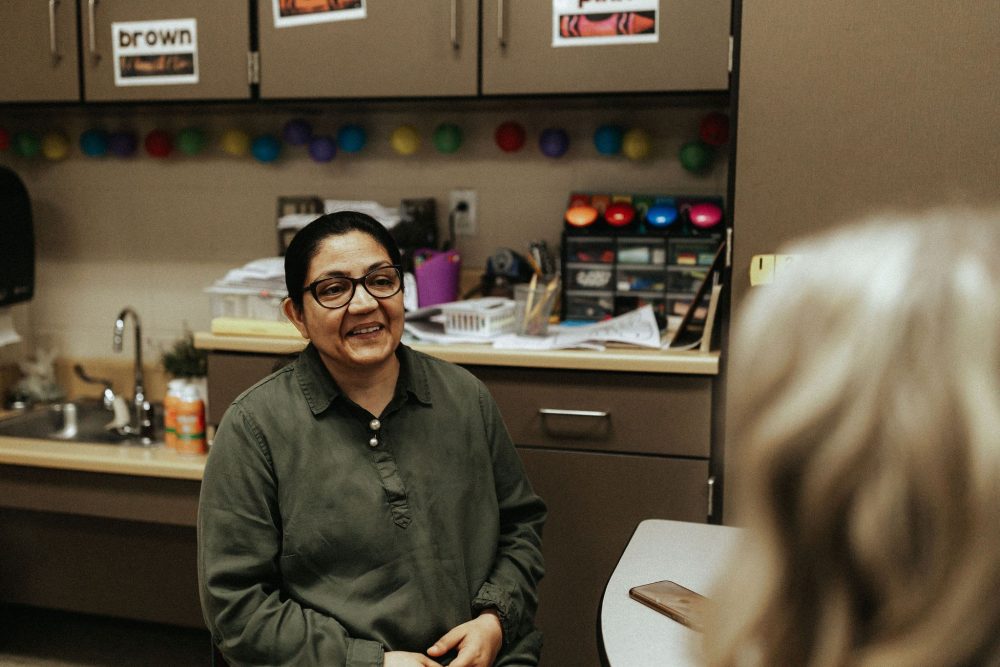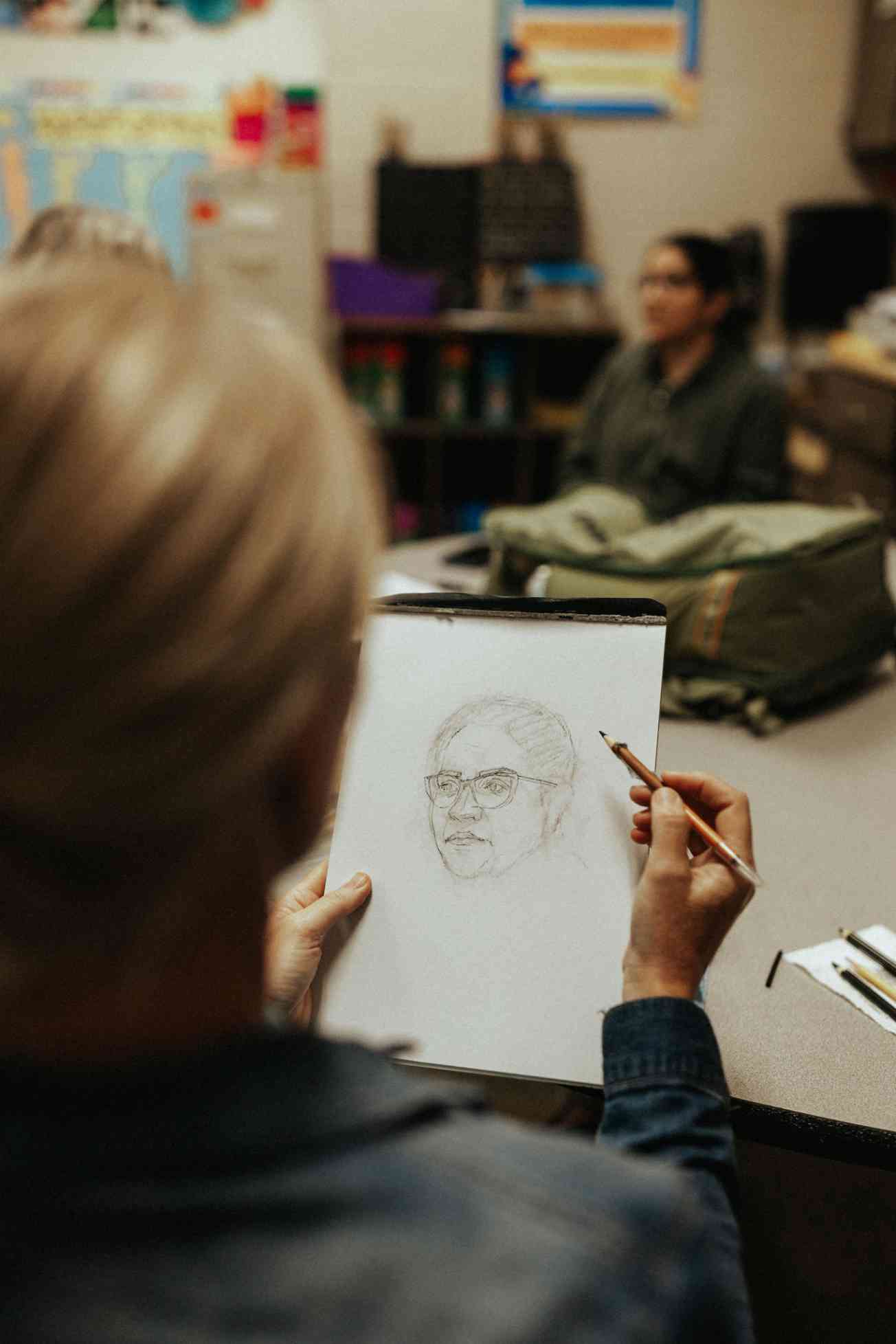It Was Just Me, One Doctor, Four Midwives, and 50 Babies
An OB/GYN describes her journey from medical professional to refugee, and the help she got along the way.

My name is Atifa. My uncle picked this name for me. It means kindness. I’m glad he picked this name for me, because I became a doctor, and my name has an effect on how I feel about my work. I work for my patients in my heart.
I am from Afghanistan. I was born and grew up in Kabul city. Both my parents are educated. My mom was a teacher in my homeland for 41 years. Then she retired. My dad was a policeman. My mom always told me, you are talkative. If you become a lawyer or journalist, that would be good for you. But actually, it was my wish to be a doctor.
I went to medical school at Kabul Medical University.
At the beginning, honestly, I just wanted to become an internal doctor. I started my residency for four years in internal medicine. Then at the end of the first year, my husband told me okay, if you finish your residency in internal medicine, no one will want to be treated by you because all the women prefer to be seen by a female doctor, and the men will not be willing to be examined by you. It is good for you to go for the OBGYN side and become a female doctor. It is easy for you in any part of Afghanistan. After that I decided to go for a new residency and applied for OBGYN. I finished my residency in Kondoz.
Those are very good memories and a good part of my life. I gave birth to my first baby at that time. And when I saw women in the same situation as me come into hospital and need help with a difficult delivery, I felt that from my own body, my own experience. I spent six years in Kondoz. Those are very good memories for me, always.
Kondoz hospital was a regional hospital. It was not a big hospital. We had one doctor on duty. During the day we had four doctors: one in the delivery room, one in the operation room, one in the emergency room. Then after three o’clock all of the doctors went home, and one doctor was on call at night. That was when I was doing my residency. It was tough. It meant four midwives were working with me. I was the one that went to the patient when she entered the ER room. I would examine her directly, give my diagnosis, then I would follow her to the prenatal unit, then post natal unit, or the delivery room and in operation. We were always running!
One night we had almost 50 deliveries. Just one night. There were more than 10 cesareans one night, just for one hospital, which covered all of the district of Kondoz. It was just me, one doctor, four midwives, and 50 babies.
We had complications. We were working a lot. We became frustrated. We lost our health. We had a lot of complications because of the lack of so many things.
Before I started my residency, I worked with India National Democratic Institute. It’s a big organization in Washington, DC and my father is now also working with them. I worked part time there. When the Taliban came, I was evacuated with my supervisors.
It was August 15th. That night, I was on duty in my hospital, the French Medical Hospital in Afghanistan. It was a very big hospital. I was a medical consultant there. They asked us for our email address and our contact numbers, and they sent letters to Washington DC. The first day the Taliban came, they started the evacuation process.
In the beginning, we went to the gate of the airport, but we couldn’t cross the gate. We left the airport, but did not go home. We stayed with relatives. After one month, our names came up and we got our papers to cross the border and get on an airplane to Qatar. So we evacuated to Qatar, and after 21 days we came to New Jersey.
Most of my family had left Afghanistan many many years ago, but my work made me want to stay. I was always busy. It was really tough for me, because when I saw the Taliban and the regime that we are now facing, I worried about my two daughters. The oldest right now is 16 years old. The youngest is 11 years old. They are very talented and they study hard. I’m so happy and glad that we are here.
It is my goal to practice medicine here. Hopefully I can pass the tests. If you see the life of a doctor in America, you know he has everything, like we had everything in Afghanistan.

Imagine that in just one week you come to America and you lose everything: your money, your car, your home, your profession. I have educated women from my country in my community but initially it was so tough. The first year was a shock for me and for my husband.
We didn’t even know how to cross the street! You just push the button for the light to switch, and see the sign, then cross the street. We do not have this kind of technology in my country.
I can’t practice medicine in the US because of the medical policy in America. The one thing that I brought with me was all my diplomas and my transcripts. All of them are in English and we had them notarized. I came with all my documents and my experience and knowledge, but no one would hire me.
Then we met Alice and Daniel at Refuge Bowling Green, and they changed our lives.
Alice and Daniel helped enroll me in nursing school. I’m now studying for my USMLE (United States Medical Licensing Exam). My goal is for this year to go for Step1.
With my job here at Refuge Bowling Green as a community health worker, I am a connection between my people and this organization. My job makes me happy. Every day, I’m busy with my community, bringing them to the doctor’s office. When the doctors explain something to my people, I know what the doctor wants to say for my people. I explain with my own language and with my own knowledge, and I know it all very well. And that makes me more happy.
We are grateful for everything. We are always grateful for those people who helped us in our country. We are grateful to the Rogers family, our mentors. Having this family in our lives to help and guide us as newcomers was essential. We are grateful for the people who can take the hand of the people of Afghanistan in bad situations.
We want to encourage other people to adopt refugee and immigrant families in your community. It is very important.
I came here with my two daughters, and we have a big dream. We have a dream to become a part of those people who take the hands of others. Yes, this is my dream.
Our team members obtain informed consent from each individual before an interview takes place. Individuals dictate where their stories may be shared and what personal information they wish to keep private. In situations where the individual is at risk and/or wishes to remain anonymous, alias names are used and other identifying information is removed from interviews immediately after they are received by TSOS. We have also committed not to use refugee images or stories for fundraising purposes without explicit permission. Our top priority is to protect and honor the wishes of our interview subjects.